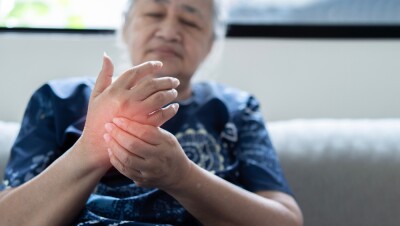Acupuncture, neurofeedback may improve ADHD symptoms
April 7, 2017
 Traditional Chinese medicine believes that the energy and essence of kidneys are responsible for the development of the brain. Deficiencies in hormones, proteins and neurotransmitters result in concentrating and have other cognitive affects, according to Jingduan Yang, MD, founder and medical director of the Yang Institute of Integrative Medicine, who developed a new protocol for ADHA patients. Yang created a treatment plan that combines neurofeedback with acupuncture. Patients typically do 40 minutes of each in one visit, and sessions occur once or several times per week. Neurofeedback focuses on the brain, while acupuncture hones in on the kidneys. The neurofeedback aspect of the treatment requires a patient to wear an electrode skull-cap while sitting in front of a television. The screen lights up and darkens depending on the patient's focus. The goal is to keep the screen lit for a full 40 minutes. When a patient loses focus, the screen darkens and the patient has to channel their brainpower in the right direction. This type of brain-training therapy is frequently used to treat ADHD, depression, and anxiety, Yang says. While Yang's methods may seem unconventional to some, medication and behavioral therapy are standard for treating ADHD, and many kids use both. Behavioral therapy instills reinforcement and reward systems, and also teaches families to create good environmental conditions where distractions are minimized and attention is promoted. In general, ADHD medications are controversial and have a number of side effects, such as appetite suppression and insomnia. Many parents medicate their kids reluctantly while searching for vitamin supplements, food, music, and holistic treatments. Alternative therapies may be a less harmful option for parents and children dealing with ADHD symptoms. Clinical trials are new and promising, though some say there's not enough science established to recommend such a protocol. Nevertheless, patients utilizing Yang's treatment protocol believe the treatments are working, and are seeingf improvements in schoolwork, relationships, moods, and sleep. Click here to read more.
Traditional Chinese medicine believes that the energy and essence of kidneys are responsible for the development of the brain. Deficiencies in hormones, proteins and neurotransmitters result in concentrating and have other cognitive affects, according to Jingduan Yang, MD, founder and medical director of the Yang Institute of Integrative Medicine, who developed a new protocol for ADHA patients. Yang created a treatment plan that combines neurofeedback with acupuncture. Patients typically do 40 minutes of each in one visit, and sessions occur once or several times per week. Neurofeedback focuses on the brain, while acupuncture hones in on the kidneys. The neurofeedback aspect of the treatment requires a patient to wear an electrode skull-cap while sitting in front of a television. The screen lights up and darkens depending on the patient's focus. The goal is to keep the screen lit for a full 40 minutes. When a patient loses focus, the screen darkens and the patient has to channel their brainpower in the right direction. This type of brain-training therapy is frequently used to treat ADHD, depression, and anxiety, Yang says. While Yang's methods may seem unconventional to some, medication and behavioral therapy are standard for treating ADHD, and many kids use both. Behavioral therapy instills reinforcement and reward systems, and also teaches families to create good environmental conditions where distractions are minimized and attention is promoted. In general, ADHD medications are controversial and have a number of side effects, such as appetite suppression and insomnia. Many parents medicate their kids reluctantly while searching for vitamin supplements, food, music, and holistic treatments. Alternative therapies may be a less harmful option for parents and children dealing with ADHD symptoms. Clinical trials are new and promising, though some say there's not enough science established to recommend such a protocol. Nevertheless, patients utilizing Yang's treatment protocol believe the treatments are working, and are seeingf improvements in schoolwork, relationships, moods, and sleep. Click here to read more.



















SHARE